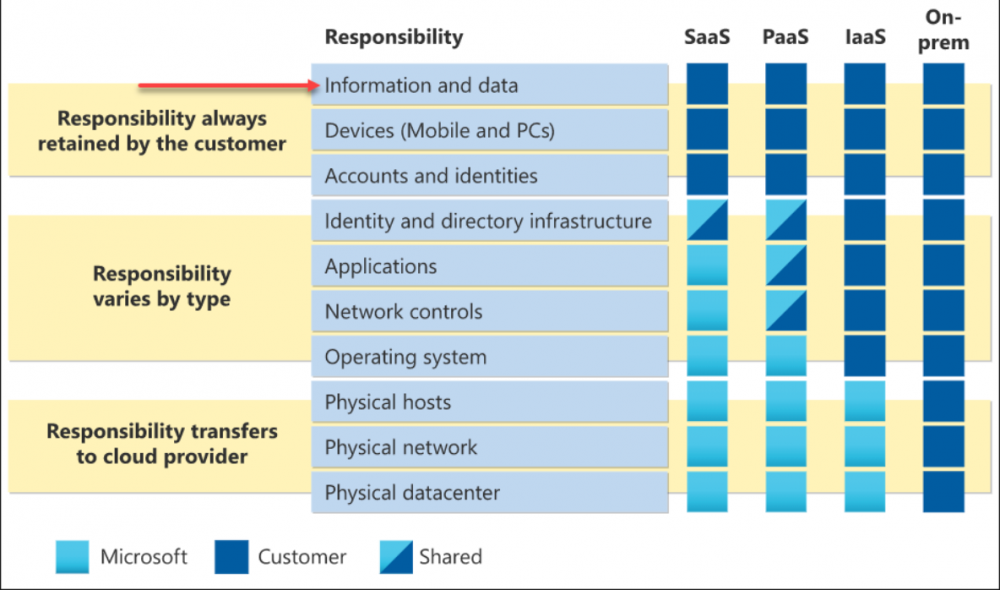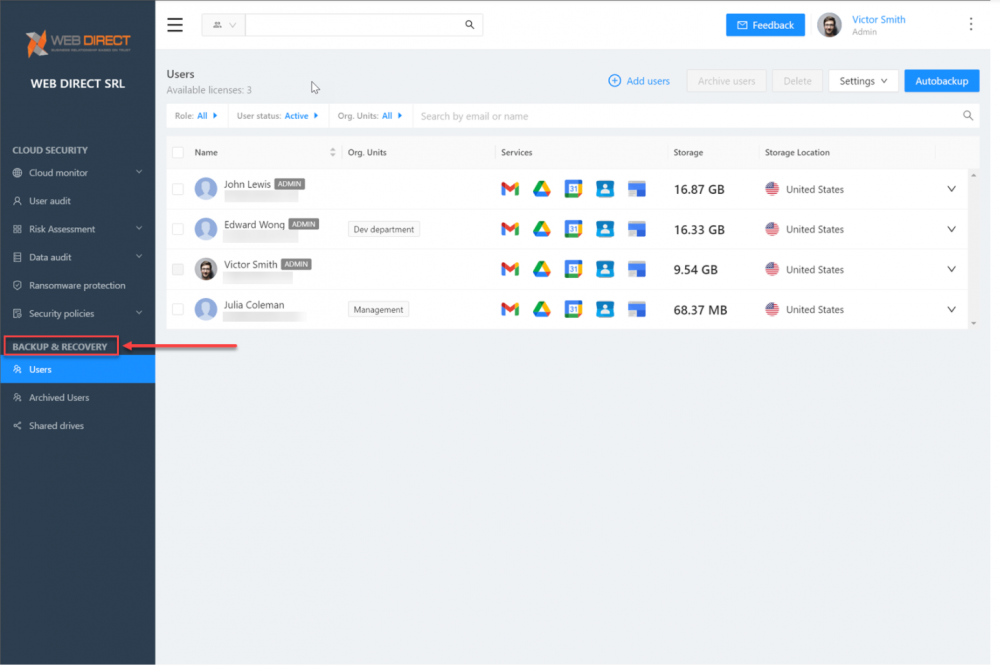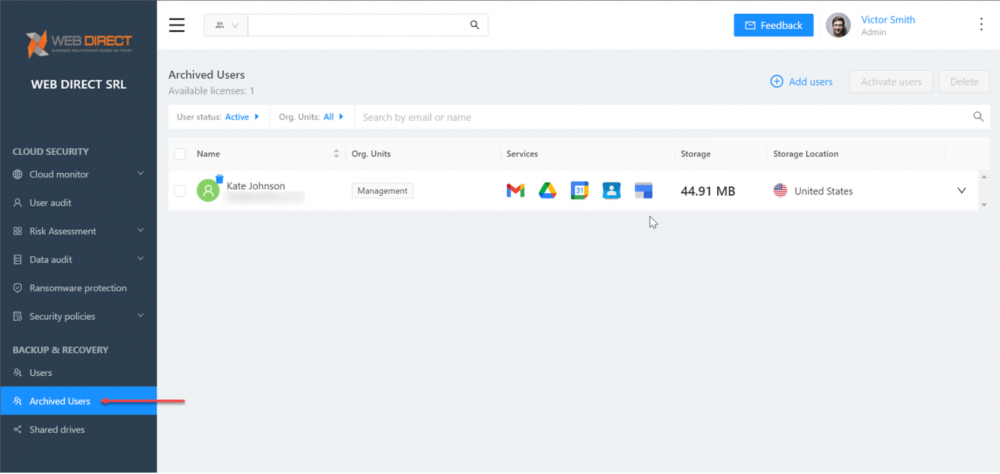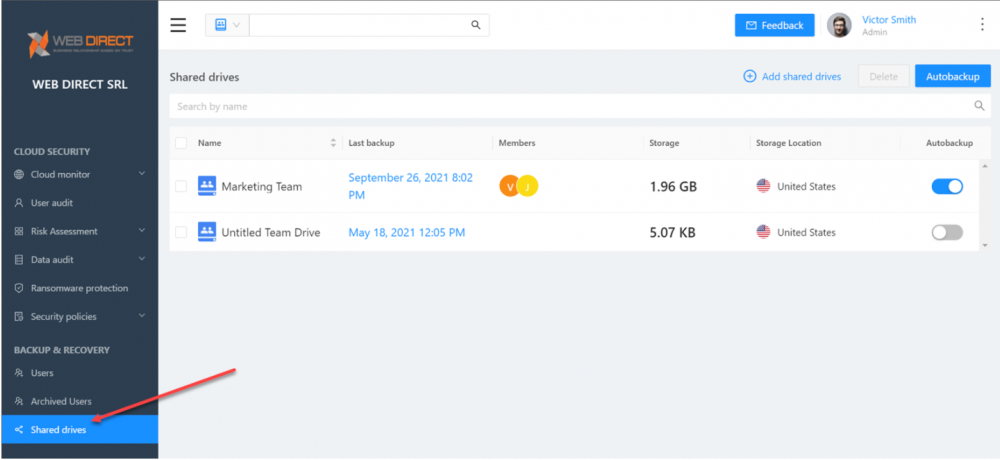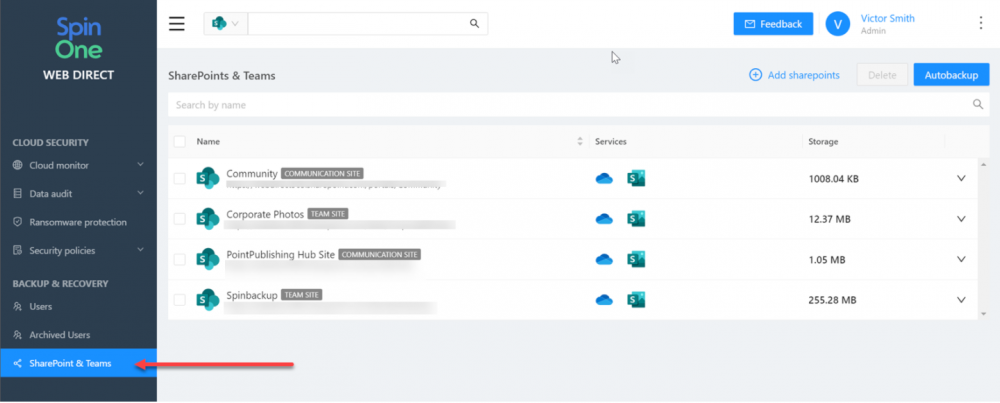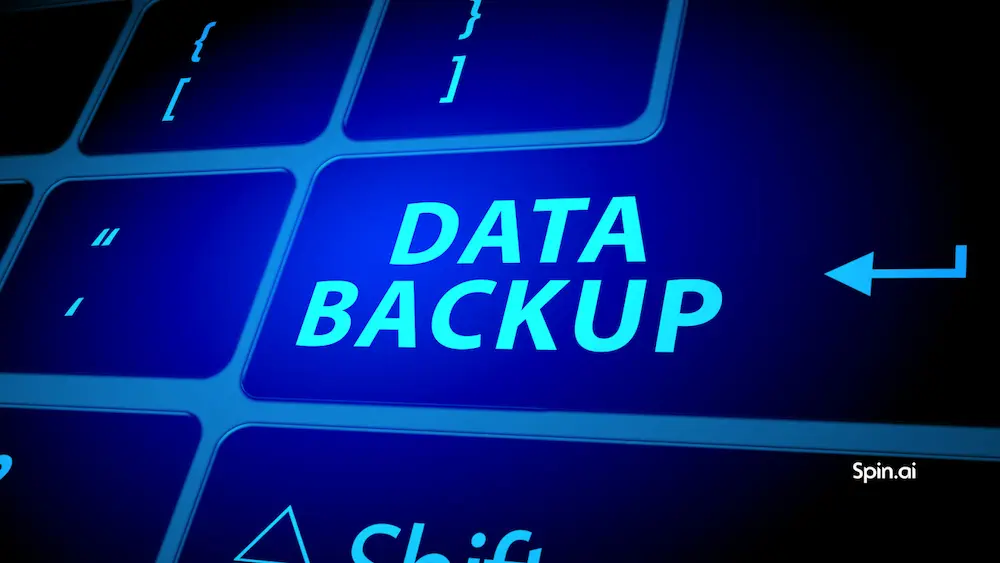Cloud SaaS Backup Policies Guide: What, Why, When, How
Many areas can lead to gaps in cybersecurity. However, an area often overlooked in the area of cybersecurity is data protection. The most fundamental part of data protection is backups. Although not readily thought about in terms of cybersecurity, backups are a vital part of security. Organizations with insufficient backup policies will undoubtedly experience data loss at some point. So why are backups a critical part of cybersecurity? How can organizations ensure they have sufficient backup policies in place in their cloud SaaS environments?
Why are backups a critical part of cybersecurity?
Many organizations may not readily think about backups as part of their overall cybersecurity strategy. As a result, all too often, businesses may forget about protecting their data in addition to securing it. Yet, backups are the most fundamental way that companies can protect their data.
Backups are often the last line of defense and remediation a business can leverage after suffering a ransomware attack or after human error or an insider threat results in data loss. Backups, by their nature, provide a standalone copy of your data at a known good point in time. They allow recreating lost data or repairing data that has been updated, modified, or corrupted.
Effective cybersecurity has been described as “layers of an onion,” with many layers of defensive mechanisms making up the overall cybersecurity posture of an organization. When all the other layers of the security “onion” fail, backups provide the layer that allows recreating the data and remediating the damage inflicted by a cyberattack.
Insufficient backup policies leading to data loss
Can backups be insufficient? Yes. Inadequate backups lead to data not being protected altogether or in a way that does not represent the entire data set. With the new work from home era and massive migrations to cloud environments, an area where insufficient backup policies are rampant is cloud Software-as-a-Service (SaaS) environments. Businesses today are migrating to cloud SaaS environments such as Google Workspace and Microsoft 365 in droves. Unfortunately, after migrating their data, many companies are not ensuring their data in cloud SaaS is appropriately protected.
There is a huge misconception affecting many businesses migrating their data to cloud SaaS environments. This misconception is their data is “indestructible,” and there is no data loss in the cloud. However, this could not be further from the truth. While cloud service providers such as Google and Microsoft run their cloud SaaS solutions in their world-class data centers with excellent uptime ratings, it does not protect businesses from data loss risks.
Cloud Software-as-a-Service providers such as Google and Microsoft operate in a shared responsibility model. The shared responsibility model requires customers to take ownership of the security and protection of their data. While the cloud service providers ensure data uptime, resiliency, and availability, businesses are ultimately responsible for the policies and solutions required for data protection and security.
Note the customer responsibility matrix provided by Microsoft, detailing the various responsibilities that reside with the customer. Under the responsibility always retained by the customer section, the following are the responsibility of the customer:
- Information and data
- Devices (Mobile and PCs)
- Accounts and Identities
Customer responsibility matrix provided by Microsoft
Since the customer is responsible for Information and data, they are responsible for data backups. While both Google and Microsoft provide a few tools such as file versioning as part of their storage solutions, this is not true enterprise-grade backups of your data. In addition, file versioning has limitations, such as the number of versions captured. Users with write access to files protected with file versioning can delete these file versions.
File versioning also depends on the availability of the very cloud that you are trying to protect. What happens if there is a widespread cloud outage? Organizations relying on file versioning and other built-in capabilities will not have access to either production or backup copies of their data. It goes against the backup best practices principles found in the 3-2-1 backup rule, which requires (3) copies of data, stored on (2) types of media, with at least (1) located offsite.
With the limitations listed above, organizations must take responsibility for backing up their data properly using a third-party solution to capture proper standalone backups of business-critical data and make these available outside the cloud SaaS environment.
Robust cloud SaaS data protection
SpinOne provides robust cloud SaaS data protection to businesses looking to protect Google Workspace or Microsoft 365 environments. It provides businesses with a cloud-to-cloud backup solution that offers excellent features and an “as-a-Service” model for protecting your data.
With SpinOne, businesses have no backup infrastructure to purchase, provision, or maintain. Instead, business-critical data is backed up from Google Workspace or Microsoft 365 environments and housed in SpinOne cloud storage using our Google Workspace Backup and Recovery and Office 365 Backup Solutions. It also provides businesses with unmatched multi-cloud storage options.
Whereas many cloud SaaS backup solutions require organizations to use the same cloud they are protecting for cloud backup storage, SpinOne decouples cloud SaaS backup storage from the cloud housing the cloud SaaS environment. SpinOne customers can choose between:
- Google GCP storage
- Microsoft Azure
- Amazon AWS S3
- Custom storage
SpinOne provides a wide range of data protection features, including the following:
- Automated daily backups
- Diversity in data storage locations
- Restore in time capability
- Data migration
- Data protection reports
- Easy to use admin panel
- Advanced search
- Backup encryption
You can easily view and protect user data in the simple and intuitive SpinOne Backup & Recovery dashboard. In addition, the auto-backup feature allows automatically protecting the data of any new users added to the environment.
SpinOne Backup & Recovery dashboard
SpinOne has released Archived licenses for Google Workspace. Once Users are no longer active in Google Workspace and their data needs to be retained, they can be assigned to low-cost Archive licenses. Archive licenses are found in the Billing section under Add-ons.
SpinOne provides low-cost archive users to archive inactive account data
Organizations can effectively protect Shared drives as part of the Google Workspace backup.
Backup shared drives in Google Workspace
In Microsoft 365 environments, you can easily backup SharePoint and Teams.
Backup SharePoint and Teams
SpinOne provides a 99.9% accurate data recovery rating. It means that no matter the cause of the data loss, including user error, ransomware attacks, malicious insiders, or a data breach, the SLA guarantees 99.9% accurate data recovery. In addition, SpinOne will recover your data exactly as it existed before, with the same folder hierarchy.
Was this helpful?
How Can You Maximize SaaS Security Benefits?
Let's get started with a live demo
Latest blog posts
Midnight Blizzard Attack on Microsoft: Key Lessons for Strengthenin...
Midnight Blizzard Attack on Microsoft: Key Lessons for Strengthening Your SaaS Security From November 2023...
Why a Reliable Backup Plan is Your Best Defense Against Cybersecuri...
…and the Most Boring Way to Protect Your Organization I’ve written about the importance of...
Why Google Drive Backups Are Important
Google Drive offers customers a unique blend of robust security features to keep their data...
